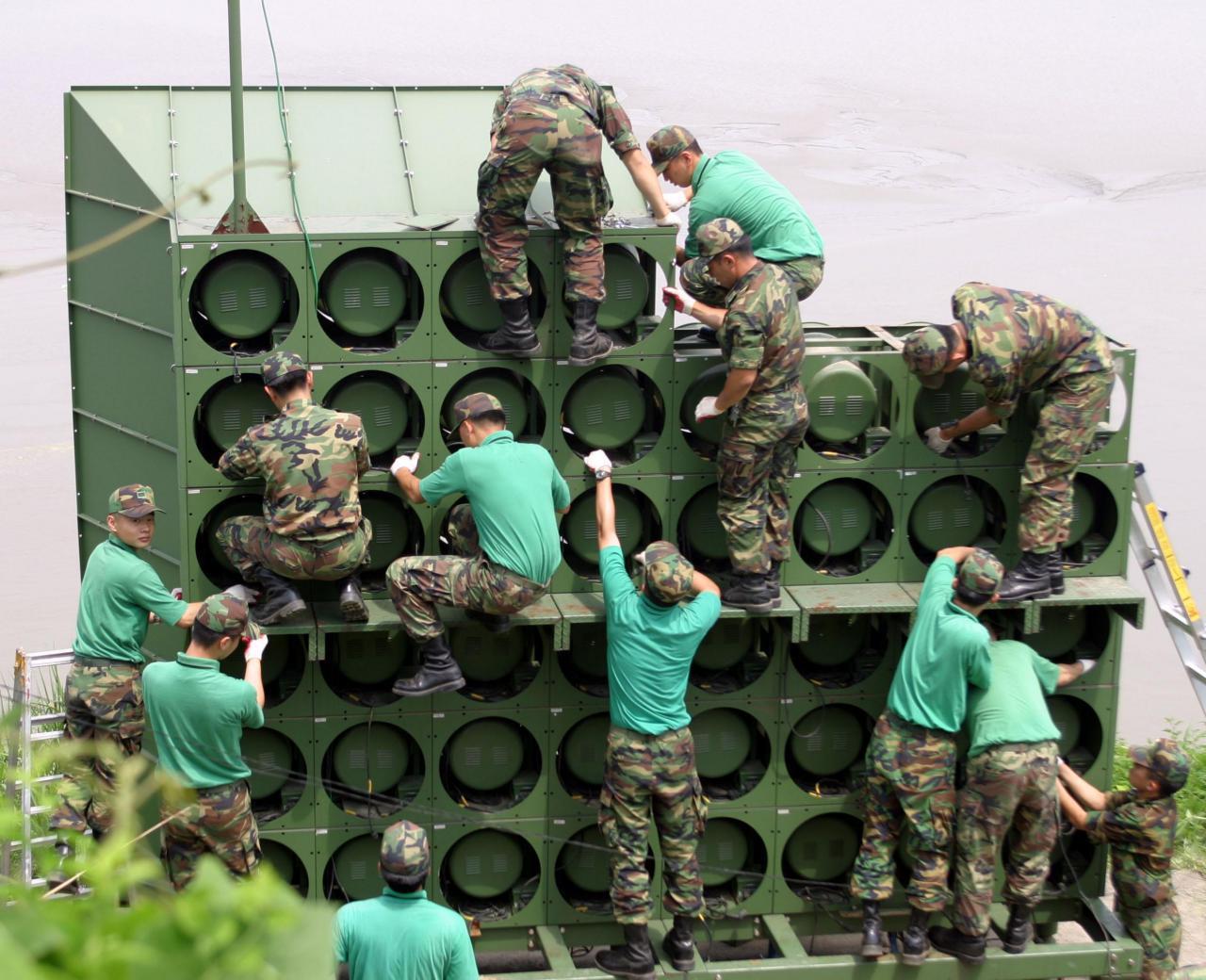SEOUL, April 30 (Xinhua) -- South Korea's defense ministry said Monday that it will remove propaganda loudspeakers along the border with the Democratic People's Republic of Korea (DPRK) in a bid to enforce the agreement reached after the inter-Korean summit last week.
As part of the follow-up measures to the Panmunjom Declaration, South Korea's military will pull back loudspeaker facilities in areas near the military demarcation line (MDL), which were used for anti-DPRK broadcasting, beginning May 1, according to the Ministry of National Defense.
The ministry said it was part of acts to implement the Panmunjom Declaration which said the two Koreas would stop all hostile acts, including the loudspeaker broadcasting against each other and the distribution of leaflets, and pull back tools for the hostile acts near the MDL from May 1.
The declaration was made Friday by South Korean President Moon Jae-in and top DPRK leader Kim Jong Un after the third inter-Korean summit at the border village of Panmunjom.
The two leaders agreed to realize a nuclear-free Korean Peninsula through complete denuclearization and turn the current armistice agreement into a peace treaty by the end of this year.
The peninsula remains technically at war as the 1950-53 Korean War ended with armistice.
Moon and Kim agreed to change the four-km-wide demilitarized zone (DMZ), currently filled with razor-blade fences, mines, watchtowers, tank traps and hundreds of thousands of combat-ready troops, into an actual peace zone.
Ahead of the Moon-Kim summit, the South Korean military stopped blaring anti-DPRK broadcasts via loudspeakers for a successful summit. The DPRK side allegedly stopped its propaganda broadcasting toward the South Korea.
The two Koreas agreed to hold a general-level military dialogue within May.
Psychological warfare through anti-DPRK broadcasts was launched in 1963, and it had been resumed and stopped in accordance with security situations on the Korean Peninsula.
Under then South Korean President Roh Moo-hyun, the two Koreas agreed in 2004 to stop the broadcast and remove loudspeakers.
It was resumed in 2016 under then President Park Geun-hye in response to Pyongyang's fourth nuclear test in January of the year.
